John Matthai Centre: A wooded campus which reverberates the name of a stalwart
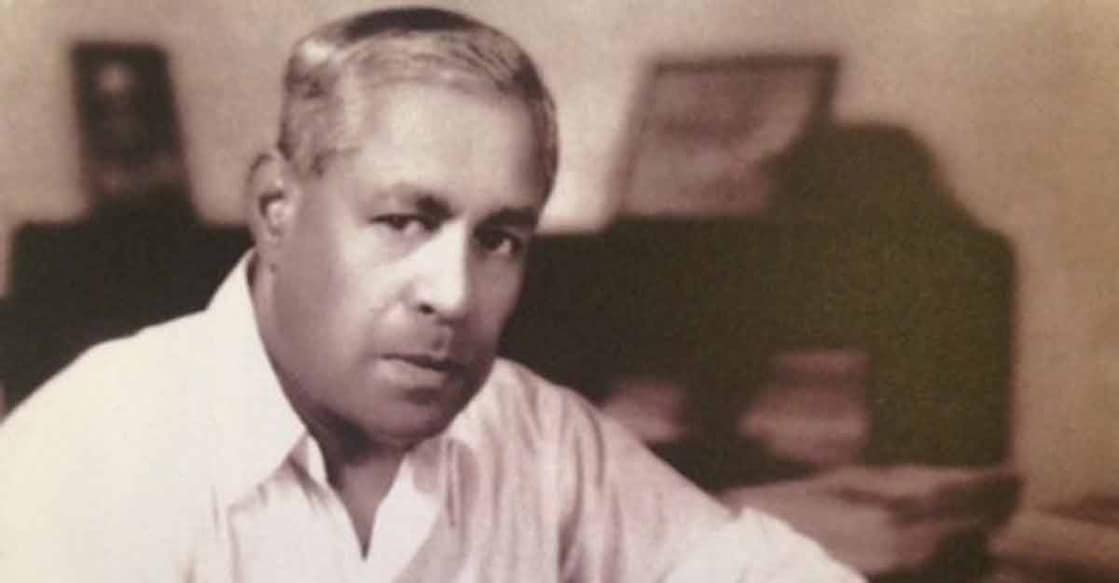
Mail This Article
The John Matthai Centre at Aranattukara in Kerala's Thrissur district, which houses a school of economics and a School of Drama, has been a place of learning for half a century. Take a walk through the sprawling campus and one realises the atmosphere here has obviously contributed to the birth of many a creative genius in theatre as well as other disciplines. In place of manicured gardens and ‘don’t touch the grass’ signs, there are massive trees with low-hanging branches with picturesque paths running through them, birds of all kinds, and even an ancient well. Save for the grand old main building and a handful of other such, nature has been left in all its glory, a rare sight for a college.
In front of the building at the entrance is the bust of a dignified gentleman with a familiar name written beneath – Dr John Matthai. Malayalis would probably know John Matthai as a renowned economist and the first Finance Minister of independent India. Not everyone would know that it was his family which donated this 18-acre property and their huge house to the Government of Kerala back in the 70s for the campus.
Husband's wish
Matthai’s wife, Achamma, was the only person living in the house post his demise and she wanted it to be made into a centre of economics, as her husband would have wanted. She gave away the land, then worth around Rs 20 lakh, for a nominal Rs 50,000 to move to Mumbai where her children were settled.
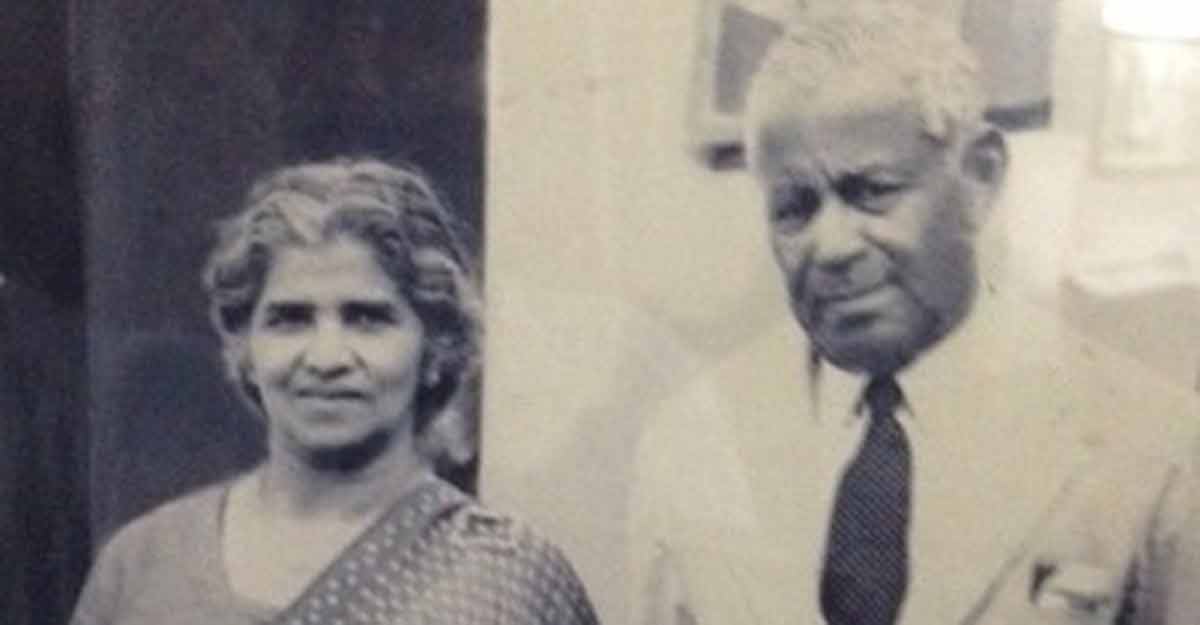
'VC from home'
Achamma’s wish was honoured and the house, with its spacious balconies running around the top floor, remains as it is even today. Its large rooms have been turned into the director’s office and classrooms of the John Matthai Centre. A plaque in front of one of the rooms says: Dr John Matthai functioned as Vice-Chancellor, Kerala University, from this room. While John Matthai wanted a quiet retired life at this house, he had decided to take up the post of the first Vice-Chancellor of the Kerala University, to honour the dream of his late brother Cherian Matthai, of Kerala getting its own university post-independence. However, John Matthai had a condition – that he would work from a home office, which is why one of the rooms in the palatial house was converted into the University Vice-Chancellor’s office.
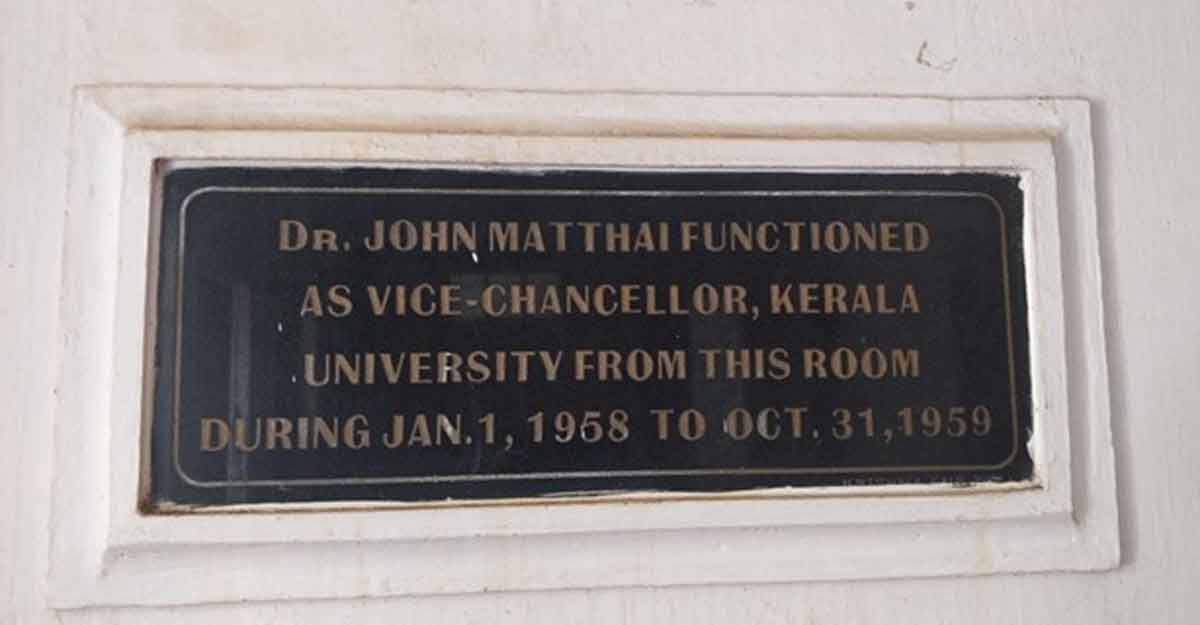
In 1976, the University of Calicut set up the John Matthai Centre, which offered courses in economics, management, and associated disciplines. The School of Drama, the brainchild of poet and teacher Vayala Vasudevan Pillai, was a later addition. Over the years, the School of Drama gained a lot of popularity, but the name John Matthai, not as much. “Students now use the short form JMC and over time, we fear they will forget the name itself, and who he was,” says Dr Zabeena Hameed of the School of Drama. “We are going to take steps to ensure that it doesn’t happen, and have already kicked off a yearly seminar in his memory.”
Tiff with Nehru
So who was Dr John Matthai? All literature about him would primarily mention his much-talked resignation from Jawaharlal Nehru’s Cabinet after the latter vested more decision-making powers with the Planning Commission. Also, people know of the many prestigious positions he occupied over the years - Director of Tata Sons, Minister of Railways, Minister of Commerce and Industry, Finance Minister in the Nehru Cabinet, the first Chairman of the State Bank of India, Vice-Chancellor of Bombay University, and finally, Vice-Chancellor of the Kerala University. He was honoured with the Padma Vibhushan by the Indian Government for his contribution to Education and Public Service in 1959.
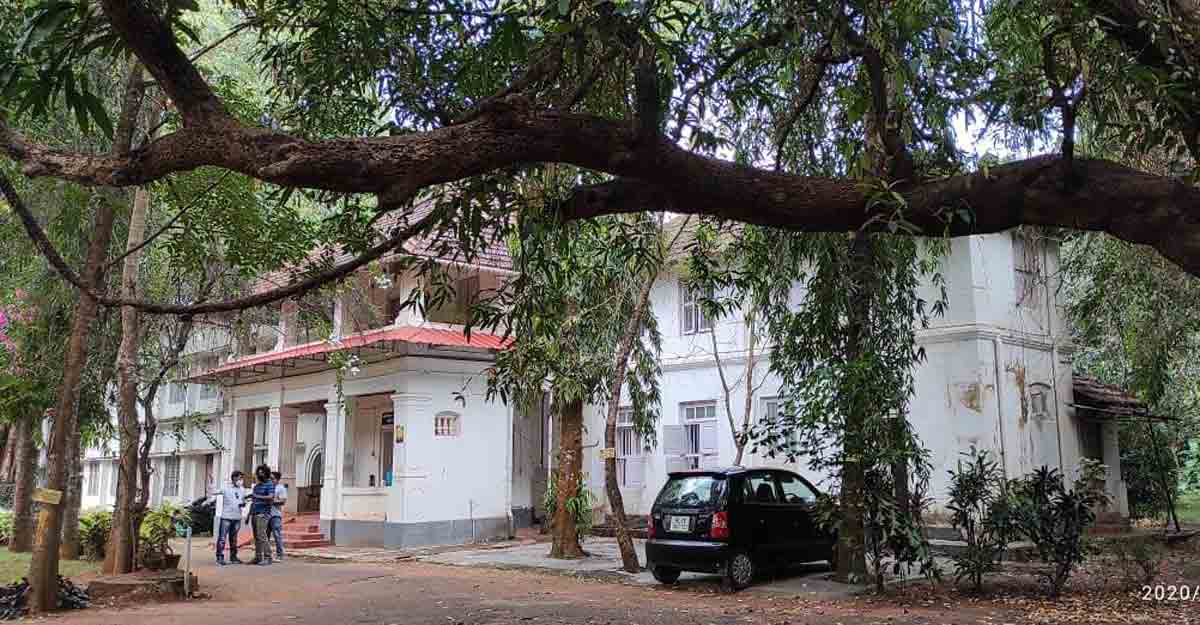
'Letters on fire'
Obviously, he was someone completely dedicated to his career. However, few know much about his personal life, a fact even his biographer Dr V Haridasan has admitted. Since Dr John Matthai had few intimate friends and had a habit of burning letters, he has not been able to gather much, Haridasan writes in the foreword of his book, ‘Dr John Matthai: A Biography.’ Also, none of Matthai's descendants are in Kerala today. His two sons, Duleep and Ravi Matthai, both of whom were renowned in their own right, grew up in Mumbai. John Matthai’s only daughter, Valsa Matthai, tragically died at the age of 21 after she moved to the US to study journalism at the prestigious Columbia University. The reason for her death remains a mystery. Incidentally, it was for Valsa Matthai that the first Habeus Corpus in the country was said to have been filed, by John Matthai.
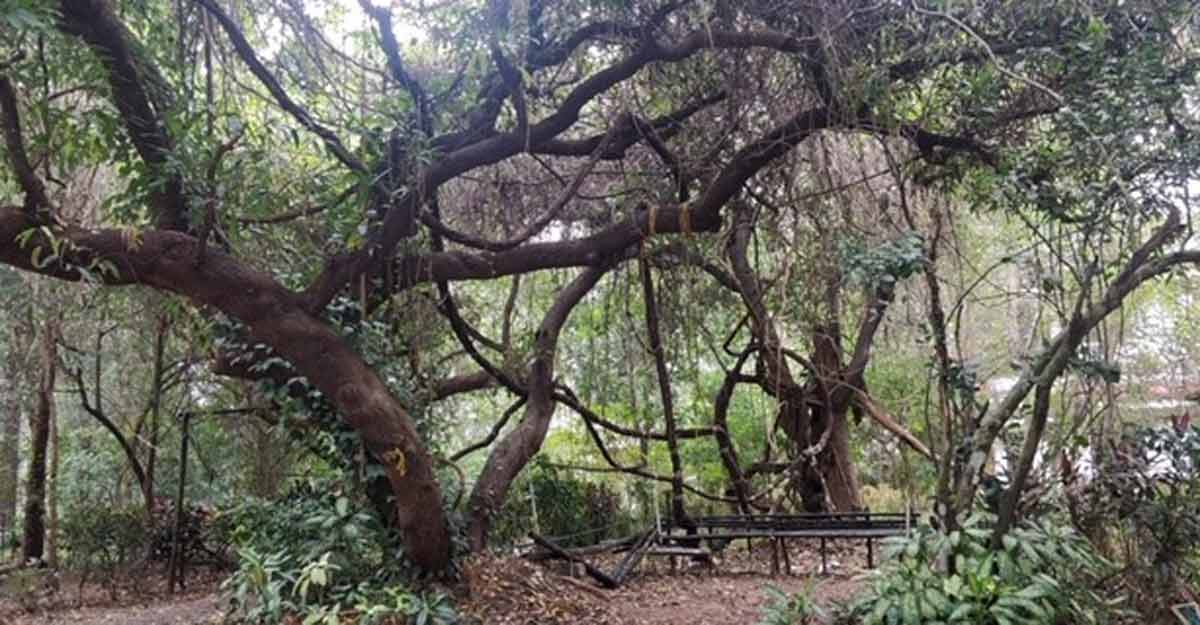
High sense of integrity
The biographer, however, cites an instance which clearly shows that Dr John Matthai not only had a high sense of integrity but was always incredibly generous as well. After the death of his brother, Cherian Matthai, Dr John Matthai became the sole heir to a lot of property at their hometown Kottayam. However, Dr John Matthai insisted that the income from the property be distributed evenly among his relatives. His private secretary Ramakrishna Iyer was the one who handled the accounts. One day, Dr John Matthai asked Iyer too to collect his share. When a puzzled Iyer asked him why he should get a share, he asked him, apparently: “Am I entitled to the share? I too have not earned it.”
Probably, it was this aspect of her husband’s persona which prompted Achamma Matthai to decide to give away the land to the government. Haridasan also writes that Achamma Matthai was no ordinary homemaker and played an important role in all the decisions her husband made in his career. She had secured a BA (Hons) from Calcutta, a rarity for a Malayali woman in 1920. She too held various important positions and worked incessantly for women and children, for which she was awarded the Padma Shri in 1955.
'Honest John'
Dr John Matthai may have had differences with Nehru, but ‘Honest John’ was how Nehru used to describe him, the book says. At the same time, he knew not to take himself too seriously as an anecdote reveals from his tenure as Cabinet minister. An avid reader, Dr John Matthai wrote once, “The trouble with a Cabinet Minister is that he can never call his time his own. I cannot think of a period of equal length in my life when I did a less general reading. In fact, the only literature I read consistently was reports of my own speeches, which, at the time, were extremely depressing reading!” Despite such, Dr John Matthai is quoted to have said often as a motto, “Life is grim business.”
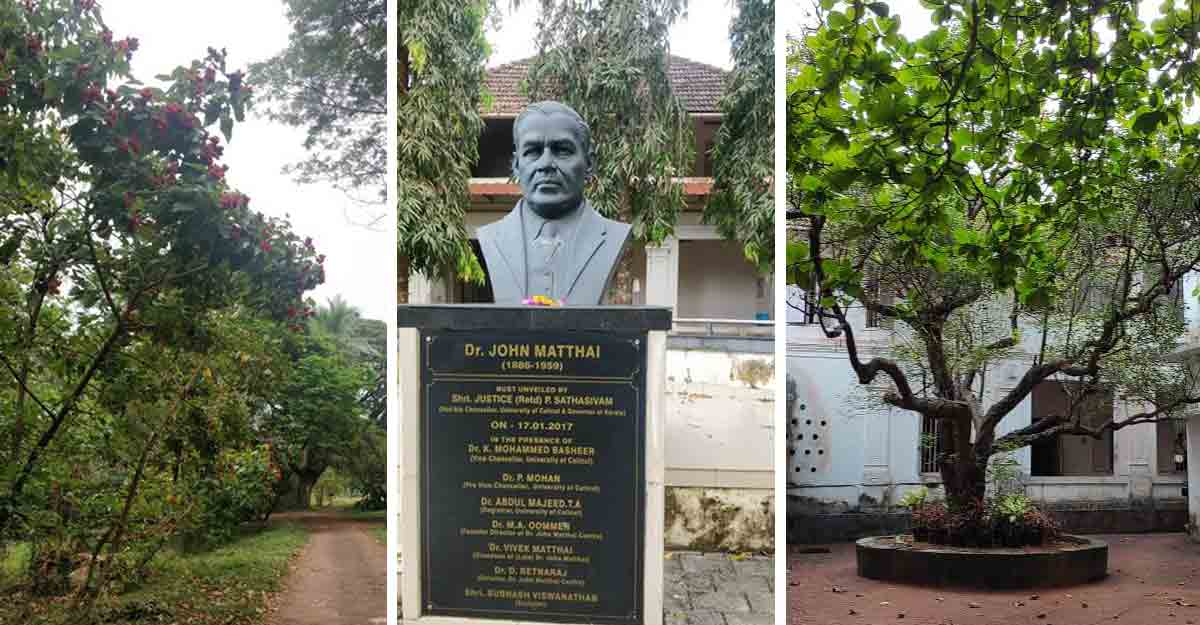
When Dr John Matthai passed away of cancer in Mumbai in 1959, not just the Tatas but multiple organisations mourned his loss, all of which had his stamp.
His legacy continues to touch lives through the contribution of his sons as well as his famous nephew, the late Verghese Kurien, also known as the Father of the White Revolution in India.
Meanwhile, in Thrissur, there might be no one who remembers him, but occasionally, old-timers from nearby houses pay a visit to the John Matthai Centre campus to catch a glimpse of the house.
(Asha Prakash is an independent journalist based in Thrissur)

